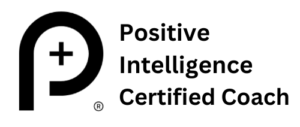
Photo: Martha Brettschneider/Damselwings Photography
Early this morning, my 90-year-old mother texted me and said, “What’s the plan today?”
I thought she was referring to it being election day. Like every other American I know (and many of my international friends as well), my mother has been anticipating November 5, 2024, with a lot of anxiety.
She had mailed in her ballot weeks ago. She had written Get Out The Vote postcards with her gnarled and painful arthritic hands and stamped them with shaky fingers. So there wasn’t anything else she needed to “do” today in terms of action.
Brain Impacts of Stress and Uncertainty
Humans have a tough time with uncertainty, which activates our brain’s alarm system and floods us with stress hormones. When negative, fear-based thinking spirals, we lose connection to our current reality.
Even though we are safe in our armchairs in this moment, we get hooked by stories that spin us into imagined future scenarios. Our brain tells us we are in life-threatening danger NOW.
If left unchecked, our perspective narrows and we forget about all the challenges we have survived. Focusing on what we feel we don’t have control over blinds us to the resources, people, personal agency, and beauty of the world that nourish us.
It’s how we’re wired to survive as a species, but can be harmful to our health, well-being, and even our potential if we get stuck in fear-based self-sabotaging thinking patterns.
My Own Reactive Stumble Into Stress This Morning
When I received the text from my mother, I thought, “Oh no. She’s already spinning herself into anxiety about the election at 7:30 am. Ugh!”
Just thinking about her stress – with the detrimental impacts on her physical and mental health – sparked stress in my own body. I felt my chest constrict and my shoulders tighten. My face frowned with no intentional prompting.
Recognizing these early warning signs of my body’s stress response, I checked in with my assumptions about her text.
Fact Checking and The Surprising Response
Connecting with her on the phone, I asked, “What did you mean by ‘What’s the plan today?’”
She shocked me by saying, “What’s the PQ plan for today?”
The tension in my shoulders and chest softened immediately, a smile spreading across my face. In an instant, my stress dissolved and gratitude took center stage.
My mother was referring to the PQ Mental Fitness program that she has just begun. Though she has never been one for self-help or personal development explorations, she recently expressed interest in the training that has been so transformative for her three daughters (myself included).
Bette Davis was right when she said, “Getting old ain’t for sissies.” My mother recognized that her negativity bias was adding even more suffering onto what was an already difficult process – the realities of aging.
So, at 90, she is learning how to use the Positive Intelligence app that delivers the content. How inspiring is THAT? And what a perfect way to spend election day, building her mental muscles to boost resilience and keep her inner saboteurs at bay?
Gratitude: The Antidote To What Ails Us
Gratitude is a powerful life hack to cut off the momentum of stress and fear-based thinking. In our Mental Fitness programs, we call this a Sage power.
Gratitude helps us stay grounded and lifts our spirit by focusing on what we DO have rather than on what we’re missing. We know from the neuroscience that what we practice grows stronger in the brain – gratitude included!
By giving attention to what we appreciate in our lives, we cultivate a mindset of resilience and abundance. We feel better resourced, and recognize the agency we have over our well-being regardless of what is happening around us.
Gratitude also helps us connect with others. Even if we have differing viewpoints, it’s likely that we as humans have similar sources of gratitude – loved ones, our health, the beauty of a sunrise, birdsong outside our kitchen window. And with practice, we may even be able to find something about that “different” person that we can appreciate, or at least empathize with.
Gratitude cultivates optimism. An ever growing expanse of gratitude opens the door to unlimited possibilities in the world. Resting attention on possibilities just feels a lot better in the body than fear-based pessimism, doesn’t it?
So today (and in the uncertain weeks ahead) I encourage you to meet stress with intentional gratitude practice. An easy way to do this is to take a few quiet minutes to list what you’re thankful for. It could be as mundane as your morning coffee, the kind words of a friend, or the antics of a squirrel that made you laugh.
Or in my case today, gratitude for my inspiring 90-year-old mother who is teaching me that it’s never too late to learn new ways of being.
Curious about Mental Fitness training? Learn more here and stay tuned for announcement of my next 12-Week session launching in early 2025.


